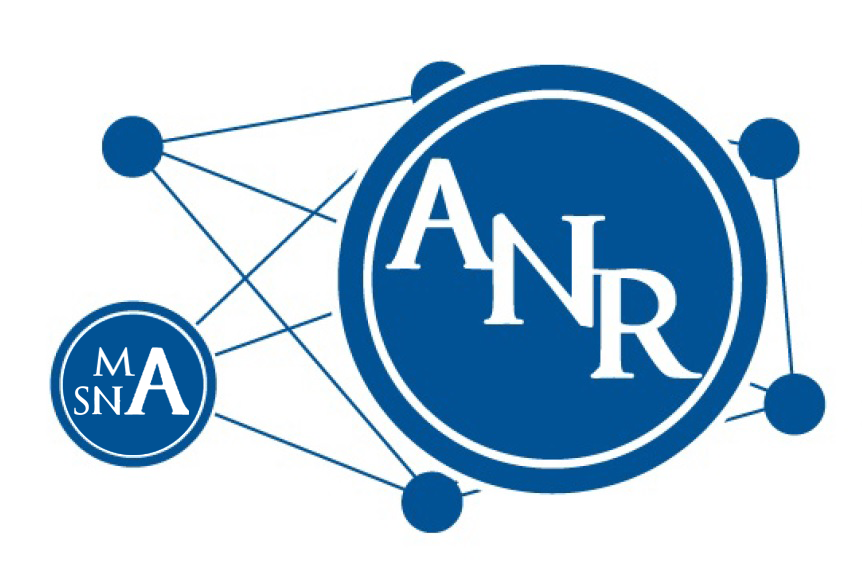November, 29 - December, 3
2017
Categorical data analysis by Tamás Rudas
Course of the International laboratory for Applied Network Research, Higher School of Economics
Categorical data analysis
Modern people live in a constantly increasing and changing flow of information. To deal with it, they often have to think not in terms of numbers and ranks, but in terms of categories ("good-bad", "useful-harmful", "friend-enemy"). Since this kind of information surrounds almost every person, very often it becomes an instrument of manipulation, propaganda and the imposition of someone else's opinion.
Therefore, it is important for the researcher to go beyond the ordinary analysis and to be able to analyze such kind of data. With this course, participants will learn how to analyze such categorical data, obtaining the maximum possible information.
Therefore, it is important for the researcher to go beyond the ordinary analysis and to be able to analyze such kind of data. With this course, participants will learn how to analyze such categorical data, obtaining the maximum possible information.
Categorical data are data with a limited number of unique values, which can be textual or numerical (nominal, ordinal, binary, count variables) that determine the fact of belonging to certain category. They are usually associated with uncountable signs, such as the names of goods or services, people's names, outcomes of events, gender, countries of residence.
Categorical variables are especially frequent in the surveys, since they naturally reflect the character of the person's thinking on the "agree - not agree" scale. For example, the measurement of political views and social attitudes can be carried out on the following scale: "totally disagree", "rather disagree", "difficult to answer", "rather agree", "totally agree".
Analysis of such variables takes a special place in statistics, since standard statistical procedures such as linear regression cannot be applied to categorical variables.
Categorical variables are especially frequent in the surveys, since they naturally reflect the character of the person's thinking on the "agree - not agree" scale. For example, the measurement of political views and social attitudes can be carried out on the following scale: "totally disagree", "rather disagree", "difficult to answer", "rather agree", "totally agree".
Analysis of such variables takes a special place in statistics, since standard statistical procedures such as linear regression cannot be applied to categorical variables.
Course description
The course assumes familiarity with the linear regression model, but is open to a broad audience.
This course deals with the most fundamental regression models for binary, ordinal, nominal and count outcomes. While advances in software make it simple to estimate these models, post‐estimation interpretation is difficult due to the nonlinearity of the models. During the course, limitations related to the special nature of variables will be considered, and ways to work with this kind of data will be suggested.
We will consider:
logit and probit models for binary data and Wald and LR tests for complex samples, used in their interpretation;
models for nominal outcomes analysis, including the multinomial logit model;
logit and probit models for ordinal outcomes analysis;
models for count data, including Poisson regression, negative binomial regression, and zero modified models are presented.
A major focus of the class is showing how to use different software for sophisticated interpretation of nonlinear models.
logit and probit models for binary data and Wald and LR tests for complex samples, used in their interpretation;
models for nominal outcomes analysis, including the multinomial logit model;
logit and probit models for ordinal outcomes analysis;
models for count data, including Poisson regression, negative binomial regression, and zero modified models are presented.
A major focus of the class is showing how to use different software for sophisticated interpretation of nonlinear models.
MEET OUR SPEAKER
Tamás Rudas
Tamás Rudas
Doctor of Science (Mathematics), Eötvös Loránd University; Doctor of Science (Sociology), Candidate of Science (Mathematics), Hungarian Academy of Sciences (Centre for Social Sciences); Affiliate Professor, University of Washington
Tamás Rudas is a Hungarian sociologist and mathematician at Eötvös Loránd University and Hungarian Academy of Sciences, whose research interests lies in multivariate statistics, analysis of categorical data, survey methodology, and applied statistics.
Prof. Rudas is an Elected Fellow of the European Academy of Sociology and Past President of the European Association of Methodology. Besides that, he has held visiting positions at the universities of Pennsylvania, Toledo, Princeton, Mannheim, Toronto, Graz, Erfurt, Ljubljana, and Washington.
Prof. Rudas is an Elected Fellow of the European Academy of Sociology and Past President of the European Association of Methodology. Besides that, he has held visiting positions at the universities of Pennsylvania, Toledo, Princeton, Mannheim, Toronto, Graz, Erfurt, Ljubljana, and Washington.
November, 29 - December, 3 / 2017
HSE Study Center VORONOVO
Voronovo, Moscow Region
HSE Study Center VORONOVO
A 3-day course in a study environment in New Moscow
Price of the course
25 000 rub.
25 000 rub.
Price includes all studying materials, accomodation for 3 days, three meals a day, coffee-breaks, transfer from and to Moscow
About ANR-Lab
International Laboratory for Applied Network Research of Higher School of Economics, Moscow, is launched in 2014 under the scientific supervision of prof. Stanley Wasserman (PhD in Statistics, Harvard), one of the "founding fathers" of social network analysis.
Lab`s goals are:
- establishing and promoting rigorous network research in Russia,
- training and development of students and young researchers,
- increasing internationalization of HSE scientific and educational endeavors.
Lab`s goals are:
- establishing and promoting rigorous network research in Russia,
- training and development of students and young researchers,
- increasing internationalization of HSE scientific and educational endeavors.
Contact us:
phone: +7 495 772-95-90 * 12-232
e-mail: anr@hse.ru
e-mail: anr@hse.ru
© All Rights Reserved. Tilda Publishing Design Co.
hello@tilda.cc
hello@tilda.cc


